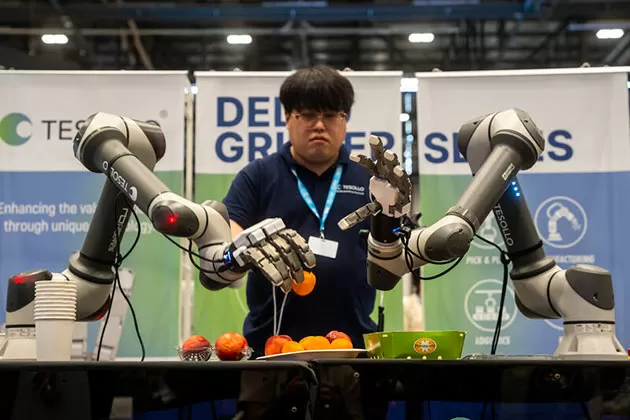Recent years have seen a rapid growth in the use of artificial intelligence (AI) in various industries, from finance to healthcare. This technology has the potential to revolutionize the way we live and work, but recent research from Stanford’s Institute for Human-Centered AI has shed light on a critical issue that needs to be addressed – bias in AI.
The use of AI has been touted as a way to eliminate human bias and make decisions based solely on data and algorithms. However, the reality is far from this ideal. Despite efforts to create unbiased AI models, bias still exists and can even worsen as models grow.
One of the most concerning aspects of this issue is the bias in hiring practices. In many industries, AI is being used to screen job applicants and make hiring decisions. However, studies have shown that these models tend to favor men over women for leadership roles. This perpetuates the gender gap in the workforce and limits opportunities for qualified women to advance in their careers.
But bias in AI goes beyond just hiring practices. The stakes are even higher when it comes to criminal justice. AI models are being used to predict the likelihood of a defendant reoffending, which can have a significant impact on their sentence. However, these models have been found to misclassify darker-skinned individuals as being at a higher risk of reoffending, leading to unfair and discriminatory outcomes.
This is a serious concern that cannot be ignored. AI is meant to be a tool that helps us make better decisions, not one that perpetuates existing biases and discrimination. The consequences of biased AI can have far-reaching effects, not just on individuals but on society as a whole.
So, why does bias exist in AI models? The answer lies in the data used to train these models. AI systems are only as unbiased as the data they are fed. If the data is biased, then the AI will produce biased results. This means that the responsibility lies not only with the designers of AI models but also with the data providers.
To address this issue, researchers at Stanford’s Institute for Human-Centered AI have proposed a framework that focuses on identifying and mitigating bias in AI models. This involves thoroughly examining the data used to train the models and implementing checks and balances to ensure that the models are not perpetuating biases.
The good news is that there are steps being taken to address this issue. Companies and organizations are becoming more aware of the potential for bias in AI and are taking steps to mitigate it. For example, some organizations are using diverse teams to develop and test AI models, ensuring that a variety of perspectives are considered.
Moreover, there is a growing emphasis on ethical standards in AI development. Organizations are realizing the need for transparency and accountability in the use of AI, and are implementing measures to ensure that their models are fair and unbiased.
But there is still a long way to go. As AI continues to advance and become more integrated into our daily lives, it is crucial that we address the issue of bias. This requires a collective effort from all stakeholders – from designers and data providers to policymakers and consumers.
We must also recognize that AI is not a perfect solution. It is a tool that is only as good as the data and algorithms used to create it. Therefore, it is crucial that we continuously monitor and evaluate AI models to ensure that they are not perpetuating biases.
In conclusion, the recent research from Stanford’s Institute for Human-Centered AI serves as a wake-up call for all of us. The potential for AI to transform our world is immense, but we must address the issue of bias in order to fully realize its benefits. Let us work towards creating a future where AI is truly unbiased and serves as a force for good in our society.



